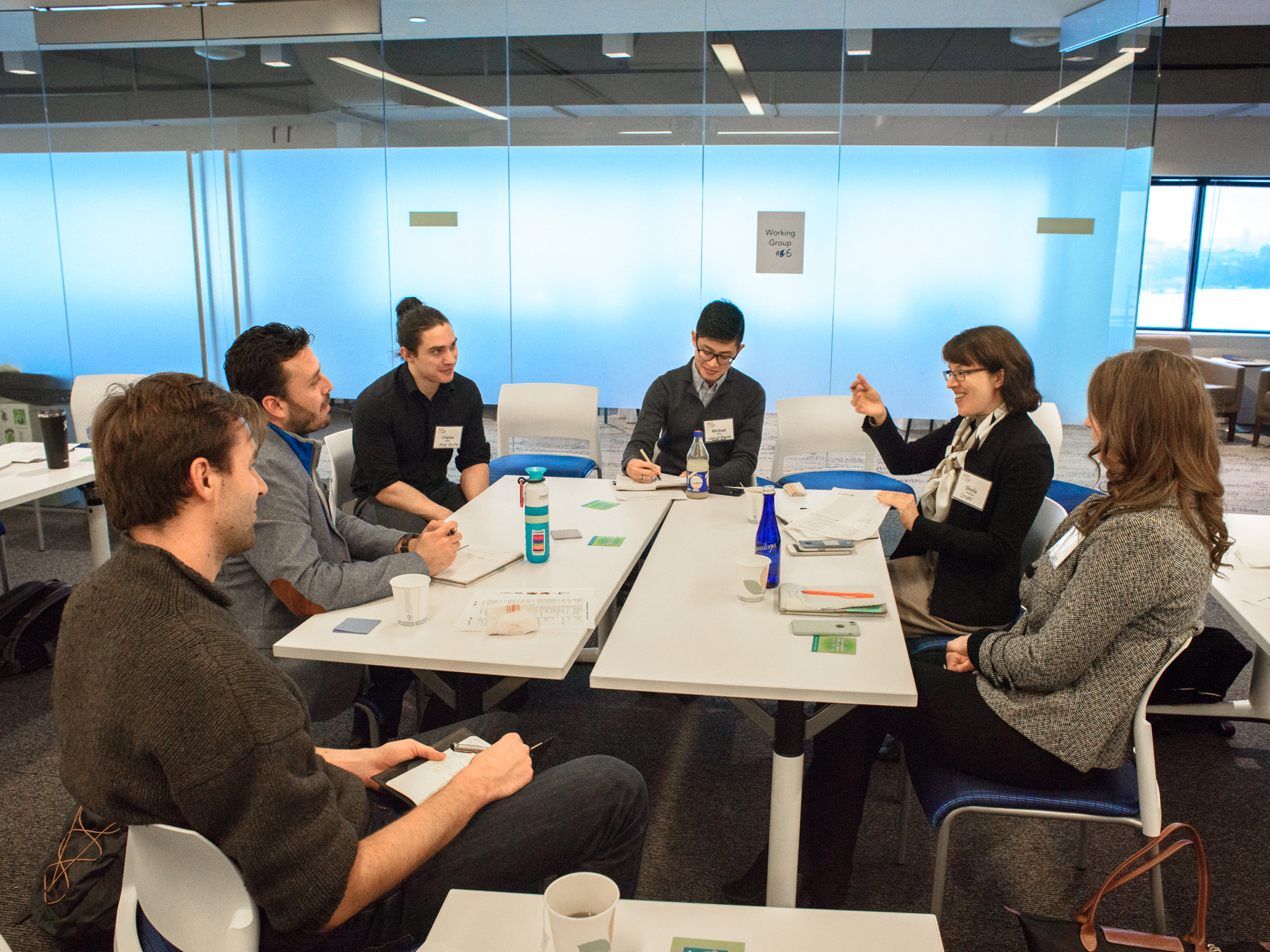Menu
ESI Stories
Letter from the Director: September 2019
 Welcome all back to campus! The entire ESI team is looking forward to working with you to make this a productive year for climate action and environmental awareness.
Welcome all back to campus! The entire ESI team is looking forward to working with you to make this a productive year for climate action and environmental awareness.
This welcome is only the latest I have given during the past few weeks, beginning with the President’s convocation this past August. I welcomed the new first-years to MIT and then described my own experience arriving at MIT as an undergraduate, class of ’85, an assistant professor in 1999 and most recently as Head of Baker House. Towards the end of my remarks at the convocation event, I made two requests for the class of 2023.
First, I asked that all students at MIT need to learn deeply about the subject of ethics: not as a sideline, not as an afterthought or an unwelcome curricular requirement, but as a central element of their education at MIT. The world has never been able to afford, and certainly cannot afford for a moment longer, the segregation of technical problem solving from the underlying philosophy and social norms that drive us to consider some things as problems and others not. To be honest I believe this is asking a lot of the class of 2023, not because of the usual reasons (the notion that students don’t want to take SHASS classes, for example) but because the faculty of the School of Humanities and Social Sciences is stretched thin – at least that’s what I see – and the listing of classes that dive deeply into the study of ethics is not as large as it might be at Harvard, or other larger universities. I am highlighting this point because it is critical that everyone learn about ethics from the experts, those who study ethics and their philosophical and social foundations, not those who do not. Learn about ethics from the experts, just as one would learn from the experts in a physics, computer science or other science and technical subject. Find those subjects and take them and demand more classes that teach ethics at MIT.
The second thing I asked of our entering undergraduate class is that they ask themselves a question: while at MIT, what will they do to address climate change? Of course, standing in front of the several hundred new first years, I was not expecting any definite answers to this question, but it is also not a rhetorical question. I really do want to know what they will do about climate change. Again, in addition to the request I am making to the class of 2023, there is an implicit question about the resources and commitment to climate change available to them here at MIT. We should be massively expanding the activities – their number and their diversity – that are oriented toward mitigating greenhouse gas emissions and adapting to the vast array of climate consequences. At the ESI we are working hard to expand our own activities and the resources that support them.
Of both requests, I am keenly aware that I, as Director of the ESI, need to answer these questions for myself and for the organization. First, the ESI is developing a set of principles by which we engage with other entities, within MIT but more urgently, outside of MIT. We are in the midst of this project and we have made a lot of headway toward a document that we will publish as our principles for engagement and operation. This is an important step for the ESI.
I also ask myself the question, how much are we actually doing to address climate change? How are we positioned to deliver and partner with others to deliver solutions to the many consequences of climate change including the urgent need for mitigating greenhouse gas emissions and the now present need to adapt to sea level rise, extreme weather, more frequent fires, and so much more? On the one hand I can list the many things we have done – launching an Environment and Sustainability minor for all undergraduates, supporting research that seeks to understand various elements of the global change we are undergoing and some work that ventures into solutions. We are also engaging with outside partners, individual climate scientists and engineers, policy-makers and politicians, and many others.
On the other hand, it is not enough. In fact, it is far from enough, not only from the perspective of the enormous interest and capacity that I perceive at MIT to confront this challenge, but also from the perspective of what is needed in the world. When I tell friends, acquaintances, non-MIT academic colleagues and many others that I direct an organization whose central mandate is to address climate change, I am met with a kind of optimistic response that, “Well, if MIT is committed to this I feel much better about the future!” It is time now to deliver on that widely held sentiment and actually play a world-changing role on climate change.
These are the key thoughts I want to communicate to you at the beginning of another academic year. I hope you will join us.
John E. Fernández, Director
September 13, 2019
Cambridge, Massachusetts
















